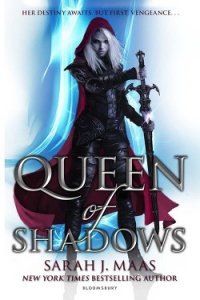Hornet's Nest - Cornwell Patricia (читать книги онлайн бесплатно полностью .txt) 📗
That was the night sweet Muriel lost her virginity, and it had nothing to do with Micky Latham, and everything to do with the bottle in its ABC store brown paper bag. When she drank, her brain lifted as if it might sing. She was happy, brave, playful, and witty. She was driving her father's Cadillac the afternoon Officer Drew Brazil pulled her over for speeding. Muriel was seventeen and the most beautiful, worldly woman he'd ever met. If he thought he smelled alcohol on her breath that afternoon, he was too mesmerized to put it in perspective.
He was rather glorious in his uniform, and the ticket never got written. Instead, they went to Big Daddy's fish camp after he got off duty. They married that Thanksgiving when she had missed her period two months in a row.
Muriel Brazil's son reappeared with grilled cheese on wheat bread, cooked just right and cut diagonally, the way she liked it. He'd put a dollop of ketchup on the side so she could dip, and he brought her water that she had no intention of drinking. He looked so much like his father, it was more than she could bear.
"I know how much you hate water, Mom," he said, setting the plate and napkin in her lap.
"But you got to drink it, okay? Sure you don't want salad?"
She shook her head and wished she could thank him. She was impatient because he was blocking her view of the TV.
"I'll be in my room," he said.
//l/i "w He dry-fired until his finger bled. He was remarkably steady because years of tennis had strengthened the muscles of his hands and forearms. His grip was crushing. The next morning, he woke up excited.
The sun was shining, and West had promised to take him to the range again late afternoon to work with him further. It was Monday, and he had the day off. He didn't know what he would do between now and then, or how he would make hours pass. Brazil could not endure free time, and usually gave it away to some project.
The grass was heavy with dew when he slipped out of the house at half past seven. Carrying tennis rackets and a hopper of balls, he walked first to the track, where he ran six miles and did push-ups, sit-ups, and crunches, to get his fix of endorphin. By now, the grass was warm and dry, and he lay in it long enough for his blood to stop pounding.
He listened to the buzzing of insects in clover, and smelled bittersweet green vegetation and wild onions. His gym shorts and tank top were saturated as he trotted downhill to the outdoor tennis courts.
Ladies were playing doubles, and he politely trotted behind them on their court, going to the other end, so he could be as far away from anyone as possible. He didn't want to disturb people with the hundreds of balls he intended to kill. Brazil served in deuce court and ad court, on one side, then the other, picking up after himself with the bright yellow hopper. He was slightly annoyed. Tennis was unforgiving if he didn't practice. His usual precision wasn't there, and he knew what this boded. If he didn't start playing again, he was going to lose one of the few things he'd ever been good at. Damn. The ladies on court one noticed a marked deterioration in their own games as they continued to watch with envy the young man on court four hit balls so hard they sounded like baseballs cracking against bats.
Chief Hammer's concentration was in and out, too.
She was presiding over an executive staff meeting in her private conference room, in her sizeable corner of the third floor. Windows overlooked Davidson and Trade, and she could see the mighty US Bank Corporate Center topped by its silly aluminum headdress, which oddly brought to mind a wild man with a bone in his nose, perhaps from some Little Rascals episode from long years past. At exactly eight this morning as Hammer was carrying her first cup of coffee to her desk, the CEO of that sixty-story erection had called her.
Solomon Cahoon was Jewish, and the Old Testament factored into his mother's choice of names for her firstborn male child. Her son would be a king who would make wise decisions, such as the one this Friday, when he had informed his police chief that she would hold a press conference to let citizens know that the serial killings in Charlotte were homosexual and of no threat to normal men visiting the Queen City on business. Northside Baptist Church would be holding a prayer vigil for victims' families and the souls of those killed. Police were following very good leads.
"Just a reassurance thing," Cahoon had relayed to the chief over the phone.
Hammer, and her six deputy chiefs, along with people from strategic planning and crime analysis, were discussing this latest commandment delivered on high. Wren Dozier, deputy chief of administration, was especially incensed. He was forty with delicate features and a soft mouth. Unmarried, he lived in a section of Fourth Ward where Tommy Axel and others had condominiums with dusky rose doors. Dozier had known he would never be promoted beyond captain. Then Hammer had come to town, a woman who rewarded people for good work. Dozier would take a bullet for her.
"What a bunch of shit," Dozier said as he slowly and angrily twirled his coffee mug on the table.
"So what about the other side of this, huh?" He met eyes all around.
"What about the wives and kids back home? They're supposed to think the last thing Pop did was pay for a homosexual encounter out on some city street somewhere?"
"There's no evidence to support such a thing," West said, and she was unhappy, too.
"You can't say something like this." She stared at Hammer.
The chief and Cahoon could agree on nothing, and she knew he was going to have her fired. It was all a matter of time, and would not be a first, either. At her level, it was all politics. The city got a new mayor, who brought along his own chief, which was what had happened to her in Atlanta, and would have in Chicago, had she not left. She really could not afford to get reshuffled again.
Each city would get only smaller, until one fine day she ended up right where she'd started, in the economically languishing one-horse town of Little Rock.
"Of course I will not get up in front of reporters and spread such crap," the chief said.
"I won't."
"Well, it can't hurt to remind the public that we are following leads and are on the case," said the public information officer.
"What leads?" said West, who headed investigations, and should be privy to such things.
"If we get any, we'll follow them," said Hammer.
"That's the point."
"You can't say that, either," worried the PIO.
"We have to leave out the;/ we get any part of…"
Hammer impatiently cut her off.
"Of course, of course. That goes without saying. I didn't mean literally. Enough of this. Let's move on. Here's what we're going to do. A press release." She regarded the PIO over reading glasses.
"I want it on my desk by ten-thirty and out to the press by midafternoon so they can meet their deadlines. And I will see if I can get up with Cahoon, talk him down from this."
This was very much like securing an audience with the Pope. Hammer's secretary and another assistant traded phone calls with Gaboon's people for most of the day. Finally, the meeting was barely arranged for late that afternoon, sometime between four-fifteen and five, depending when a gap appeared in the CEO's impossible schedule. Hammer had no choice but to show up at the early end of this interval and hope for the best.
At four she left her police department and walked through downtown on a lovely afternoon that, before this moment, she had not noticed. She followed Trade to Tryon to the corporate center, with its eternal torch and sculptures. Inside a huge lobby of polished stone, she walked briskly, her heels clicking over marble as she passed rich wood paneling and famous fresco paintings depicting the Shingon philosophy of chaos, creativity, making, and building. She nodded at one of the guards, who nodded back and tipped his cap. He liked that lady chief, and had always thought she walked like she knew how, and she was nice and didn't disrespect anyone, whether they were a real cop or not.
Hammer boarded a crowded elevator and was the last to get off at the top of the crown, which at this dizzying level, really was aluminum pipes. Hammer had visited Cahoon before. Rarely a month went by that he didn't summon her to his suite of mahogany and glass overlooking his city. As was true of Hampton Court Palace, visitors were required to pass through many outer layers and courts to get to the king.
Should a crazed gunman decide to carry out his mission, by the time he reached the throne, many secretaries and assistants might be dead, but Cahoon, quite likely, would not have heard the noise.
Several outer offices later, Hammer entered the-one occupied by the executive secretary, Mrs. MullisMundi, also known as M amp;M by those who did not like her, which was virtually all. She was candy-coated, but with nuts. She would melt in the mouth and break teeth. Hammer, frankly, had no use for this perky young thing who had gotten married and kept her name while appropriating that of her husband, Joe Mundi.
Mrs. Mullis-Mundi was bulimic, and had breast implants and long dyed blond hair. She wore size four Anne Klein. Her cologne was Escada. She worked out daily in Gold's Gym. She did not wear slacks, and was simply biding time before she sued for sexual harassment.
"Judy, great to see you." The executive secretary stood and offered her hand with the same lilting style that Hammer had observed in devout bowlers.
"Let me see how he's doing."
A half hour later. Hammer remained seated on a buttery-soft ivory leather couch. She was reviewing statistics memos, and attending to the armies marching restlessly inside her briefcase. Mrs. Mullis-Mundi never got off the phone or grew tired of it. She took one earring off, then the other, then rotated the phone again to a hand less tired, as if to emphasize the painful demands of her career. Often she looked at her large scratch-proof Rado watch, and sighed, flipping her hair. She was about to die to smoke one of her skinny menthol cigarettes that had flowers around the filter.
Cahoon was able, at last, to fit the chief in at precisely thirteen minutes past the hour. As usual, his day had been long, with far too much in it, and all insisting that they could speak to no one but him.
In truth, he had never been in a hurry to let Hammer into his office, regardless of the minor fact that it was he, versus her, who had demanded a meeting. She was ornery and opinionated, and had treated him like a bad dog the first time they'd met. As a result, he was one without fail and consistently, when dealing with her. One of these days, he would send her down the road and bring in a progressive man, the sort who snapped open a briefcase with the Wall Street Journal and a Browning Hi-Power inside. Now, that was Gaboon's idea of a chief, someone who knew the market, would shoot to kill, and showed a little respect to leaders of the community.




